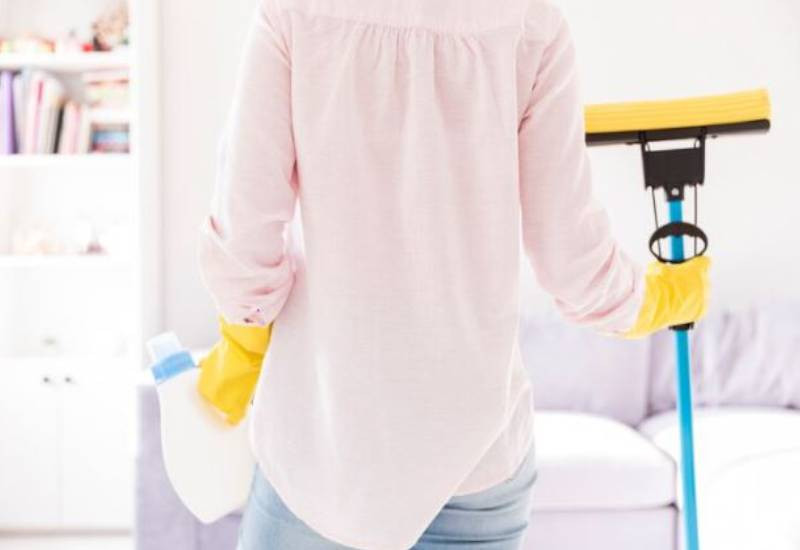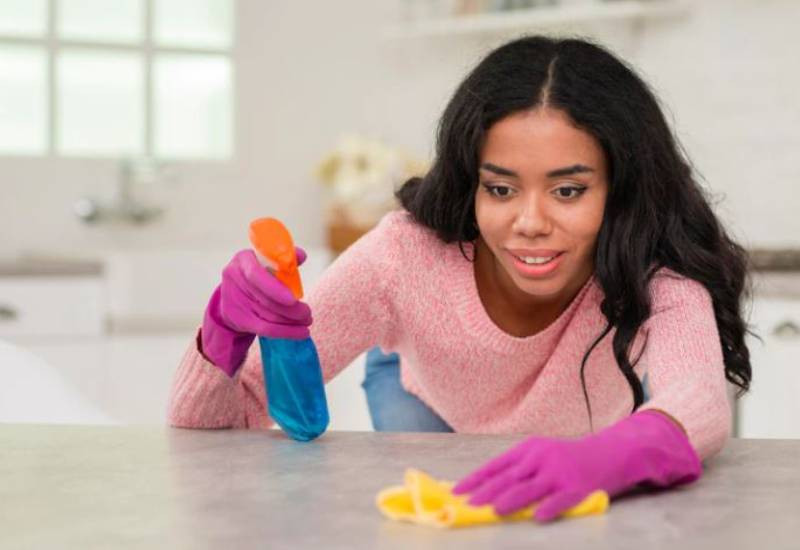
What is the first thing you look out for even before you start cleaning out your kitchen?
Start with the most efficient tools to aid your cleaning; a good soap and a sponge for the most part. By good soap, I mean one that is especially free of artificial fragrances which are known to be hormonal disruptors, carcinogenic and cause respiratory issues. Being so close to our food, these fragrances remain on our dishes and we ultimately ingest them. Our dishwashing bar is free of these artificial fragrances but still cleans as effectively if not better.
What are your favourite tools to help you clean?
First, water. Is water a tool? Regardless, it is an effective cleaner. Then, our scouring powder. In the same way, you prepare ingredients before cooking, you also want to make sure you prep your dirty dishes before cleaning. Our mothers may call it lazy cleaning, but it works well: once you have removed the food remains from the plates, pots and pans. Soak them in water with a bit of our surface cleaner (an all-purpose cleaner) or scouring powder to lift any stains and grease while killing germs. Often, people think our stain remover is only for laundry but works well on cutting boards, countertops and stained pots and pans.
Fruits and veggies are a big part of hosting. What is the best way to clean them? Just before eating or just before storage?
If buying organic, the product will actually stay longer if left dirty since the microorganisms from the soil help protect them. Good examples are potatoes and carrots. However, if you are not sure if the produce is organic, it is best to take a two-step approach to elongate the product's shelf life. First, clean with natural soap to remove debris, and pesticides, and then disinfect to kill bacteria, viruses, and fungi that may have come in with the tap water. At Grounded, we use our instant disinfectant which is food grade, meaning once you spray on your produce, you do not have to rinse it off. It uses a similar technology that is used in Japan on sushi (raw fish) to preserve it.

How much of the product should one use to see results?
With our products, not much. This is because unlike most conventional products we do not add fillers just to increase volume. Fillers are added to keep the customer coming back. For example, our 2kg laundry wash will do 66 loads of laundry, compared to any 2kg conventional laundry wash which will get you 12 washes at the most. Also, did you know that most conventional cleaning products add extra foaming agents that do not necessarily help in cleaning? They do this because, in Africa, we believe that if it does not foam, it is not cleaning. If you do not believe me, check out all the cleaning ads; their marketing point is the foam.
What do you think is the hardest part of cleaning when hosting?
Lack of preparation. If you prepare well by pre-cutting your ingredients beforehand, you will be setting yourself up for success by having fewer utensils to clean when cooking. As a rule, I never let dishes pile up until the sink is full. Once the sink is full, it is impossible to clean anything.
How sustainable is the 'clean as you go' philosophy when hosting?
You do not want to be stuck in the kitchen when hosting. That is where pre-soaking dirty dishes comes to play. That way, whenever you can steal five minutes or so away from your guests, you lessen the dish load. I have a Beef Pho recipe which uses quite a number of utensils.
Which is the best way to clean utensils? Running water or in basins?
I prefer using basins, for the ease of presoaking and because I can use the resulting water from the dishes to water my kitchen garden. That is how biodegradable and safe for the environment our products are.
 The Standard Group Plc is a multi-media organization with investments in media
platforms spanning newspaper print
operations, television, radio broadcasting, digital and online services. The
Standard Group is recognized as a
leading multi-media house in Kenya with a key influence in matters of national
and international interest.
The Standard Group Plc is a multi-media organization with investments in media
platforms spanning newspaper print
operations, television, radio broadcasting, digital and online services. The
Standard Group is recognized as a
leading multi-media house in Kenya with a key influence in matters of national
and international interest.


